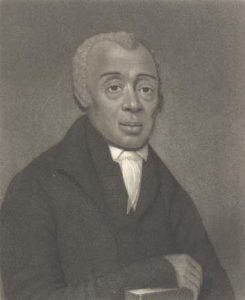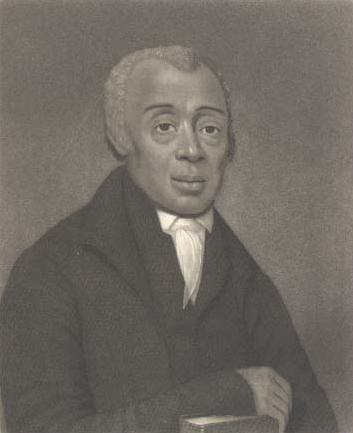A Temple Guardian of Windows:
The Right Honourable Bishop. Richard Allen

Richard Allen (February 14, 1760 – March 26, 1831) was a minister, educator, writer, and one of America's most active and influential black leaders.
Richard was born into slavery on February 14, 1760, on the Delaware property of Benjamin Chew. He taught himself to read and write and joined the Methodists aged 17. He began evangelizing the African slaves and attracted criticism from local slave owners. By age 30, Allen had performed enough extra work to earn the money to buy his own freedom in 1780, when he changed his name from "Negro Richard" to "Richard Allen.
Allen was qualified as a preacher in 1784 , alongside, Absalom Jones, also a Methodist preacher, they together resented the white congregants' segregation of blacks for worship and prayer. In 1787 they decided to leave the white controlled church, to create independent worship for African Americans and formed the Free African Society (FAS), a non-denominational mutual aid society that assisted fugitive slaves and new migrants to the city.
Allen focused on organizing a denomination in which free blacks could worship without racial oppression and slaves could find a measure of dignity. He worked to upgrade the social status of the black community, organizing Sabbath schools to teach literacy and promoting national organizations to develop political strategies. The social themes of Bishop Allen's preaching were abolition, colonization, education, and temperance.
The African Methodist Episcopal Church is the oldest and largest formal institution in black America.
The Credentials and Significance:
He devoted his life to first obtaining his own freedom, then that of his brethrin, not only physically but also spiritually. He founded the African Methodist Episcopal Church (AME) in 1794, the first independent black denomination in the United States and was elected its first bishop in 1816. He saw the need for African's to worship the Divine and Christ, through there own unique spectacles and Temples. What he founded based upon this premise, is today the most successful black institution in the United States, still today.
